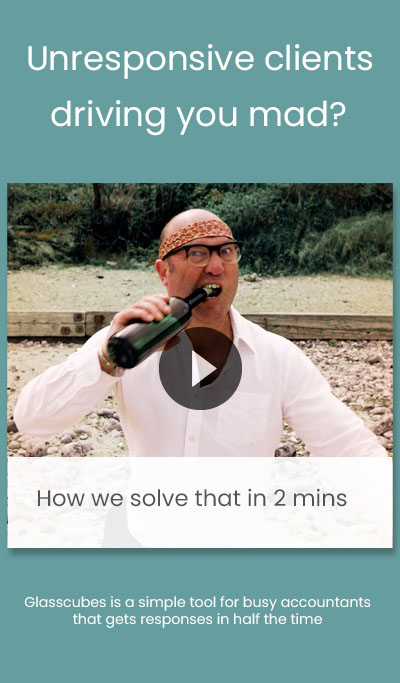How To Become An Accounting Consultant: An Accountant’s Advice
on 14 October 2022
After working in accounting for a number of years—whether in the accounting department or for an actual accounting firm—you’ve no doubt toyed with the idea of striking out on your own. But what does becoming an accounting consultant entail, and what must you do to make the transition successfully?
Who better to weigh in on these questions than an already successful accountant consultant? Colin Smith is the owner of CPA Exam Maven and a CPA who offers financial reporting services. Keep reading to see his insights.
Why become an accounting consultant?
The allure of independence and flexibility make accounting consulting an inviting prospect. You don’t have to seek approval from a supervisor. Instead of clocking in from nine to five at the office, you can set your own hours and work from home.
“In fairness, these aspects may be less of a draw now as corporations have become more flexible in recent years, but there are often limits and strings attached to accessing that flexibility,” says Smith. “For example, you may have to work at the company for a certain length of time or have exemplary marks on your annual review. Even then, you still may have to agree to be available within the company’s business hours. Becoming an accounting consultant or starting your own firm means you’re your own boss and can take more control over when and how you work.”
Smith says independence and flexibility aren’t the only motivators for embarking on the consulting path. “Life changes often force you to think differently about how you want to progress in your career and the job opportunities you want to explore—and some of those opportunities are entrepreneurial in nature.”
Regardless of your reasons for wanting to become an accountant consultant, Smith says there are a number of items you must address prior to rendering services. While not every item listed below is mandatory, they all play an important part in making a successful transition from the corporate world to accounting consulting.
7 Essential Steps To Become An Accounting Consultant
1. Formalize your business.
You may be tempted to just start offering your services as an individual, but Smith says to take the necessary steps to protect yourself legally by setting up a formal business structure.
In the U.K., this typically means registering as either a sole trader or a limited company (Ltd.), which is very similar to a limited liability company (LLC) in the U.S. Make sure you’ve researched both options before deciding which is best for you.
“Keep in mind setting up a formal business structure does more than offer legal protections over your finances,” says Smith. “It also helps present a professional image to clients—they’ll know you’re serious and more likely to stick around than if you were just an independent accountant consultant.”
2. Get business insurance.
Before you offer any accounting consultancy services, Smith says it’s essential that you secure two types of insurance:
- Professional liability. Also referred to as errors and omissions coverage or professional indemnity, this insurance typically covers negligence, copyright infringement, mistakes, and similar claims a client may make when filing a lawsuit against you. “For example, if you are preparing tax returns for a client and accidentally enter an error that impacts what they pay, professional liability insurance will cover you should the client sue you,” Smith explains.
- General liability. This insurance protects your financial interests should a client file suit against you for damage or injury caused by your business operations or products; some policies may also cover claims of slander, libel, or advertising injury. “Say you visit a client site and break something or injure someone. General liability will cover you if legal action is taken against you,” says Smith.
If you’re considering foregoing these types of business insurance, Smith advises you to reconsider. “Some clients will actually require you to have these insurance policies—or at least professional liability—to engage with you.”
3. Start a business banking account.
“For tax and organisation purposes, you need to have a separate bank account for all your business-related transactions,” says Smith. Any successful business owner would agree that mixing business and personal funds is a recipe for disaster. “Not only does it get confusing quickly, but it can also make the liability protections you receive from a formal business structure less effective.”
4. Shift your mindset from employee to owner.
One thing Smith notes many consultants don’t learn quickly enough is to shift the way they think about their work. In their transition from corporate accountant to accounting consultant, they neglect to “shed their corporate shell and understand they are now a business. That means thinking like a business owner—not an employee who clocks in and out, has work assigned to them, and must navigate the internal politics of their company.”
As a business owner, you have a multitude of aspects you must consider that you never had to as an employee: selling, being self-motivated, determining your fees, and more. We explore a few of these in more depth in the remaining points.
5. Learn how to sell.
“Employees have work handed to them. Consultants not only have to find the work, but also sell it,” says Smith. “This requires a very different skill set than accounting requires, and it can make the transition into consulting difficult for some.”
You must learn how to sell yourself as an accounting consultant. Even if you have a lot of experience and education, Smith says that’s not always enough to close a sale. There are many accountants who have comparable accolades, so it’s up to you to showcase your unique value and convince clients you’re the best choice.
6. Become self-motivated.
Leaving the corporate world distances you from internal politics and bureaucracy, but it also removes management pressure. On the surface, that may seem like a good thing, but Smith says many accountants are so accustomed to constant direction and reviews that they’re not sure what to do on their own.
“If you’re not naturally self-motivated, you have to quickly develop the discipline needed to plan, execute on, and review your own work for clients,” Smith explains. “No one is there to tell you what to do. No one is going to check in with the client about their needs and calibrate the direction of your work accordingly. You’re responsible for these actions as a consultant.”
7. Decide on your fees.
Determining what to charge clients is another difficult task in becoming an accounting consultant. Smith advises against falling into the trap of simply charging what you were paid as a staff accountant because you’ll quickly run yourself into the poor house. You have to think about your consulting fees from multiple angles.
Firstly, there are a number of new costs you’ll incur:
- Self-employment tax
- Business insurance
- Health insurance
- Equipment
- Software
- 401k savings
Secondly, you must consider downtime. As a staff accountant, you typically get paid the same amount regardless of how much work you do—even if you don’t do any work because things are slow. That’s because your pay as an employee is not just about your work but also your availability. “As an accountant consultant, you have to worry about downtime. If you have no clients, you aren’t getting paid. Your rate needs to reflect this reality.”
Thirdly, your hourly rate as an employee was not what your company was charging clients. Smith says this is an important consideration. “Assume you were being paid $50 per hour. Chances are your company billed you to clients at $100 or even $200 per hour—sometimes more with specialized expertise. You’re the business now, so keep in mind what clients will be expecting to pay. Ultimately, figure out a rate that puts you in the position you’re aiming to occupy as an accounting consultant.”
Client collaboration is critical as an accounting consultant. Get the job done right with Glasscubes.
One of the key aspects Smith also believes an accountant consultant must be mindful of is client collaboration. Anything that makes it easier to interact with clients and build the relationship is something worthy of consideration.
That’s where Glasscubes, an all-in-one collaboration solution and client portal, enters the picture. Glasscubes helps accountants collaborate seamlessly with clients so you can focus on delivering great work and building long-lasting relationships. Keep track of multiple client projects with customised workspaces, securely store and share sensitive documents, assign tasks to clients or employees to complete, and more.
Glasscubes enables you to:
- Gather information from clients in a timely manner and automatically chase overdue or missing items
- Simplify communication with clients and strengthen your working relationship
- Ensure information is acted on as it is received by replacing repetitive actions with a custom, automated workflow
- Build custom workspaces to keep client work separated, and invite only relevant parties to access each space
Glasscubes is also security-minded: All data is protected by SSL encryption, and distributed across multiple physical locations across the UK to ensure high availability.
If you’d like a demonstration or want to see how other accountancies are using Glasscubes, learn more here.


